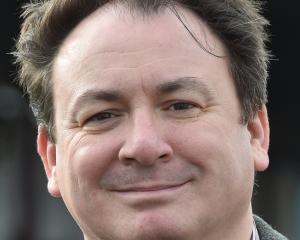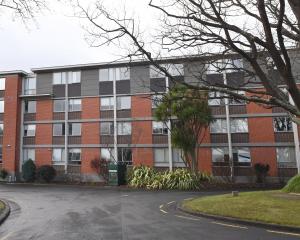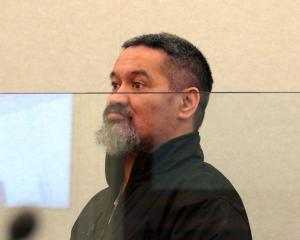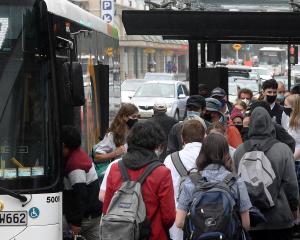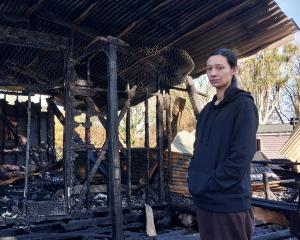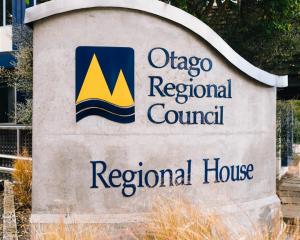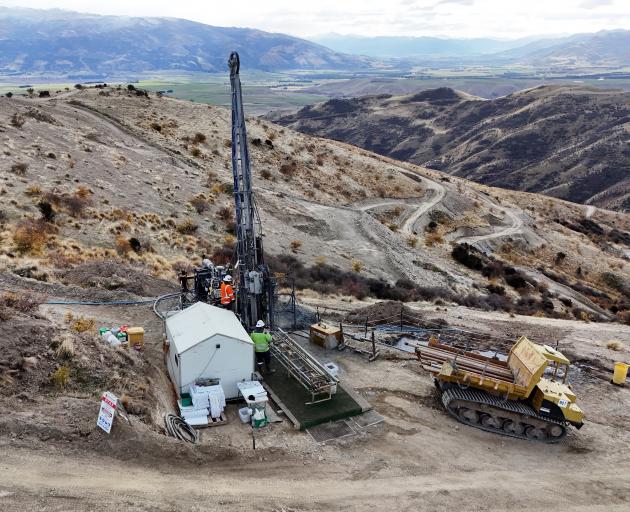
Councils need to stick to the five ‘Rs’ only
The main functions of district councils are the "five Rs": reticulation of water; district roads; resource management; rubbish disposal and recreation.
For decades, many councils have exceeded their statutory functions by diverting revenue to appease public interest groups at the expense of the general ratepayers.
This is one of the reasons why annual rate increases have exceeded the CPI. Elected councillors must ensure annual rate increases reflect the current rate of inflation plus a small margin to deal with unforeseen emergencies.
Councils must not be diverted into non-core agendas like growing the district economy (whatever that means), or tourism promotion, or social housing. Other agencies are better placed, and funded, to do these sorts of things.
Debt funding of a grant to a community project is legitimate, provided a mandate from ratepayers is achieved. Debt facility headroom must be maintained for capital expenditure and for major disaster relief.
Councillors, as a governance group, have no mandate from general ratepayers to lobby on generic political issues.
Would-be councillors, please campaign on your governance/business experience and your proven commercial acumen in order to help manage the "five Rs" on behalf of all ratepayers.
Name recognition
The article in the ODT (18.6.25) about councillors standing for mayor to increase their chances of being elected to council is about name recognition.
When faced with a long list of mayoral or councillor candidates many will have little idea of who they are, what they stand for or their suitability for the role. Name recognition therefore becomes a factor. If we look around the country there are some mayors who are former national politicians, sportspeople or others whose name is already well known. Their success could be attributed, at least in part, to their former public profile.
This is why Andrew Simms and Future Dunedin are spending vast sums of money advertising. This expenditure will buy recognition of their names on the ballot paper.
It’s a sad day for local democracy when the outcome of an election can be influenced by wealth.
Sheep and trees
Richard Holloway (Opinion ODT 19.6.25) provides a cogent promotion for converting low-grade agricultural land into silviculture but omits some of the downsides.
Yes the return to individual farm foresters may be higher than traditional farming, with the current but fluid price of carbon, but NZ Inc is denied the downstream profits and employment generated from processing traditional farm produce, and rural areas become depopulated.
He champions forestry as a way of mitigating climate change but the Parliamentary Commissioner for the Environment disagrees with this solution. This is a distraction from the key action of reducing emissions and trees will sequester carbon for just a few decades or less, in the event of forest fire.
If the silviculture is production forestry, the carbon credits have to be repaid when the trees are felled. As China’s building boom has peaked raw logs may no longer be in demand.
The alternative is carbon farming, where the land is ultimately occupied by dead trees in perpetuity. The cost of then restoring this land to conventional farming is prohibitive.
NZ Inc must take a balanced long term perspective to land use.
The reversal of historic roles questioned
On December 7, 1941 two Japanese diplomats were in Washington DC, ostensibly attempting to negotiate a diplomatic solution to the conflicts of interest which had arisen between Japan and the United States in East Asia and the Pacific and which had reached crisis proportions.
On June 22 2025 American and Iranian diplomats were scheduled to meet in Oman to attempt a solution to critical questions about the goals of Iran’s nuclear programme and about its international regulation.
In both instances diplomatic negotiations were pre-empted and subverted by devastating military sneak-attacks in contravention of all international norms of behaviour.
In 1941 President Franklin Delano Roosevelt told the American people that the attack on Pearl Harbour was, "…a day that will live in infamy." It is likely the Ayatollah’s words to the Iranian people in the present crisis are just as resonant and succinct, Persian culture being anciently rich in poetry.
One cannot help but note the historical reversal of roles of nations and entire peoples over a period of a few decades. The Americans went from being the grievously injured party of 1941 to being the perfidious international imperialist aggressor of 2025.
What is the nature of mankind that it is so easy for a people to be transformed from tragic victims to monsters of oppression in such a brief span of time?
One last question: is New Zealand to continue, a meek petitioner, hat in hand, in lowly acquiescence with this criminal "Western" cabal, or to assert its sovereignty and a principled, independent policy?
My ancestor was a miner, but views more valuable than gold
I am here because of gold.
In the late 19th century my great grandfather travelled from Cornwall to mine at the Hamiltons mine above Waipiata. The scars from the sluicing on the Rock and Pillar mountains are healing.
I know the Dunstans where the Bendigo-Ophir mine is planned by Santana. I’ve biked over Thomson’s Track both ways.
On high, there is peace and tranquility. The views of both the Clutha and Manuherikia valleys close by below, and the Southern Alps beyond are spectacular.
As planned, the huge, deep open-cast mine will create permanent scars, the risks of toxic mine drainage high.
For me and many who love this special part of New Zealand, the environmental damage inflicted for a minimally useful metal is too high.
Santana — please do not dig.
Anti the antis
The anti brigade (anti-airport, anti-irrigation and now anti-mine) have been active lately with their rhetoric, among other things claiming the proposed Bendigo mine will cause the ruination of the wine industry.
This smacks of hypocrisy as many of these same vineyards have been built on or close to land that was mined in the 1800s, both alluvial and underground. These operations were conducted with little or no environmental considerations including mercury recovery systems and yet apparently the wine industry flourishes (apparently) despite the methods of yesteryear.
Any mining operation now will be conducted under strict environmental controls.
These same people would have been no doubt anti the Clyde Dam, which has left multiple benefits to the community. A rebuilt Cromwell, the goat track that was the Cromwell gorge road now of a high standard, a yacht club, rowing clubs, fishing and many other lakeside activities.
In fact, the lake has raised the water table in the Bendigo area to enable the vineyards better access to ground water for their irrigation and frost-fighting systems.
Anti the pros
I have just attended a large public meeting in Wānaka, where the vast scale of the open-cast mining proposed by the Australian mining company Santana was revealed.
It would leave whole valleys in the Bendigo region, covering some square kilometres, permanently reduced to a landscape of blasted bedrock and mine waste. Also, there is potential for long-term harm to groundwater and air quality from arsenic contamination.
This sort of destruction may be acceptable in the Australian desert, but it is not acceptable in Central Otago, as was clear from the upset reactions at the meeting. A proliferation of Macraes Mine type mega-pits across the unique landscape and biological systems of the Central Otago schist mountains is on the cards, given the intensity of gold exploration and the coalition government’s enthusiasm to mine tomorrow at all costs.
Large-scale open-cast mining, which cannot be successfully remediated, has no social licence in a region where tourism, wine and fruit-growing, based on scenery and environmental purity, are vital to the economy. It is possible that fully underground mine workings, (which are included in the Santana proposals) would be more acceptable, but with strict environmental controls.
However, the fast track legislation of the coalition government will limit public input, and allow little time for the considered assessment of environmental effects.
It should be remembered that the Save Manapouri campaign only succeeded in saving the lake with a change of government in 1972. Labour promised no lake raising, whereas National wanted a broad-based dam that could later be raised.
A similar campaign, followed by a change of government next year, may be the only hope for the threatened iconic ranges of Central Otago.
Protect our hills
The cruelty colouring events in Ukraine and the sheer brute force of how ICE is being ordered to treat immigrant families in the United States must not distract us from major happenings here in New Zealand.
In truth, these world events come from a similar place within the human psyche.
I refer to the government’s fast-tracking Bill and the Regulatory Standards Bill.
The former will affect directly Santana Minerals’ application to mine gold at Bendigo in Central Otago. Like many who know and love this area, who choose to embrace the serenity and light that provide a balance to the artificiality of our lives, this project looms as a shocking joke.
It will be seen from space for goodness sake. And yet if granted permission to be fast-tracked it may become a reality.
To prioritise such projects as a goldmine, especially in the wake of the National Policy Statement for Freshwater Management and the long-term plan 2024-34 for Otago, both results of complex and first-class research that have been cut off before they had had a chance to prove themselves to be legislation for all our futures, comes from the same place in the human psyche referred to earlier.
As with savagery and brute force, there is something irreversible about millions of tonnes of polluted tailings, and airborne particulate matter carrying arsenic, cadmium and lead — not to mention the noise which would be 24/7.
[Evelyn Skinner is a Central Otago Environmental Society member. This letter is her personal view.]
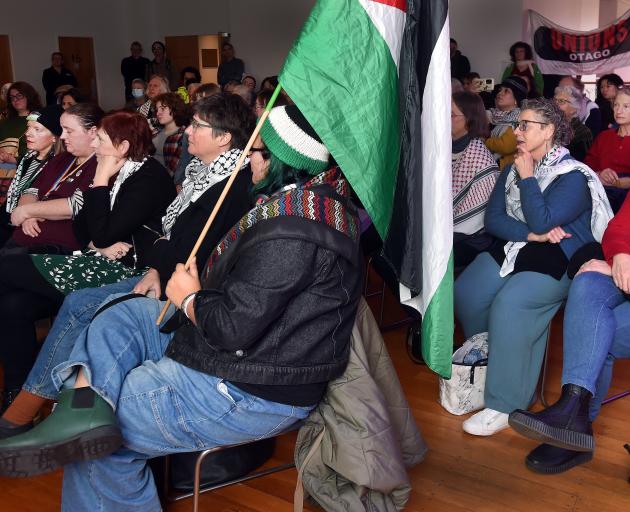
Moral courage
Hurrah to the moral courage of Dunedin city councillors last Wednesday debating whether to advocate for boycotting Israel over its aggressive expansionism.
I was warmed by Cr Jim O’Malley’s response to Nigel Woodley, representing the Coalition of Ministers Supporting Israel. Re the starvation tactics of Israel in Gaza, Jim was reported as saying: "What would Jesus do?"
Hamas certainly provoked Israel in a horrible way, but this was only in response to Israel progressively and violently taking and occupying Palestinian land for 75 years, beyond what was mandated by the UN in 1948 as a Jewish homeland.
I am drawn to the bigger God as revealed through the life, ministry, death and resurrection of Christ that challenges some of the Old Testament’s understandings of God that Zionists allude to.
Jesus certainly challenged some Pharisaic Jewish directives of his time.
His stories about the Good Samaritan helping the robbed man, and the Samaritan Woman at the well ministering to Jesus, speak of a broader context of justice and compassion. It could be argued that the Samaritans of Jesus’ day equate to present day Palestinians.
Flowing from this is the challenge for us to side with the majority of Jews both in Israel and round the world who are most unhappy with the wars being enacted on their behalf by the Netanyahu regime.
What indeed would Jesus’ response have been? Let the big God of love, justice and compassion infuse us.
[Ken Baker is a retired Presbyterian minister.]
Not so grateful thanks
Thank you to Pastor Woodley (Letters ODT 23.6.25) for reminding us that there will never be peace in the Middle East as long as religious myths are believed.
Proper function
I note that Dunedin city councillors were evenly split over a decision to back the Unlawful Occupation of Palestine Sanctions Bill (ODT 19.6.25).
What amazes me is that councillors even spent time considering the admittedly awful situation in Gaza, and in front of "applauding, jeering, or laughing" city folk.
I understood that the function of councillors is to be responsible for setting the vision for Dunedin, developing local legislation, and overseeing the management of city resources.
I see it as perfectly reasonable that individual councillors write to the prime minister asking that government MPs back the Bill, but the council as a whole doing so is another matter.
It is no wonder that the percentage of people who vote in local body elections is so low.
Eyes off the ball
As the foremost, award-winning print medium the ODT automatically assumes the responsibility of monitoring its own local council for the benefit of ratepayers, which for the most part it does very well.
But, given the circumscription that these responsibilities impose please will you clearly indicate through your publication how our rates money is being spent on salaries for councillors — some of whom have apparently taken their eyes off the ball.
Councillors’ prime and only focus is on local matters — those that pertain to the affairs of this region — matters which fall within the purview of the people of Dunedin and its nearby surroundings that impinge upon the welfare of ratepayers, their properties and services, dealings for which they, as a representative group, were elected to be responsible in as economic a manner as possible.
It is not for them as our representatives to debate the objectives, justifications or rectitude of conflicts in the Middle East. Such matters are far beyond their remit and not open to their individual moral contemplation on our behalf.
They have overstepped their boundaries. Ethics dictate that their time as councillors is solely to be spent on local matters and/or as these are relevant to the dictates of our central government.
There is no mandate for each councillor’s "conscience". There can be no collective proposal or communal resolution made on behalf of Dunedin’s ratepayers.
Since there is soon to be a local body election it would be to the advantage of ratepayers to know to whom payment is deserved and to whom it is not when valuable council time is spent on any controversial matter outside of local body governance.
Yes, it is
Greg Bouwer (Letters ODT 19.6.25) claims Jenny McNamara in accusing Israel of genocide has uttered a falsehood. In the absence of evidence of intent a charge of genocide fails, he writes.
I’m afraid it’s Mr Bouwer who is presenting falsehoods. To begin with, Mr Bouwer neglects to mention his role in the lobby group the Israeli Institute of New Zealand.
His second falsehood is on the question of intent. There are historic documents that explicitly prescribe a course of action in Palestine that amounts to genocide.
In 1947 in anticipating the ruling by the UN to establish the State of Israel, Prime Minister David Ben Gurion accepted and endorsed the Dalit (D) plan to dispossess and seize Palestinian land and villages using extreme violence. The plan was the blueprint for Israel’s military operations starting in March 1948 until the end of the war in early 1949, and so played a central role in the 1948 Palestinian expulsion and flight known as the Nakba (catastrophe).
The Dalit plan clearly indicates intent to implement ethnic cleansing or genocide as specified by various international agreements and in particular the Treaty of Rome that established the International Criminal Court.
Israel is not a signatory to this treaty but Palestine is; under the historic authority of the Palestinian Authority. Most of the signatories have agreed to execute warrants issued by the court.
Thus New Zealand may feel obliged to arrest or sanction Israelis who have committed offences against Palestinians.
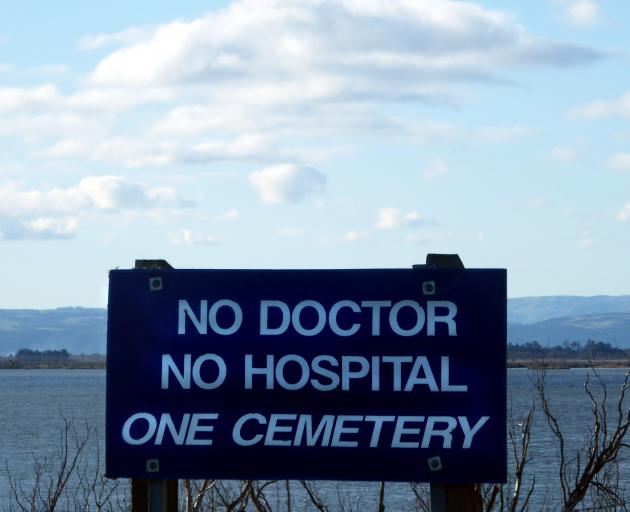
Danger ahead
What I consider to be a road hazard is when coming at either end into Waihola on SH1.
Here the legal speed limit goes directly from 100kmh to 50kmh. The 50kmh sign cannot be seen until one is very close to it: already there is an indication of a fatal accident happening at the Henley end.
Then, very close to this sign within the township of Waihola, are the flashing signs indicating the actual vehicle’s speed.
From my observation most of the vehicles were still exceeding 50kmh, as shown on these flashing electronic signs. This causing most vehicles to rapidly decrease their speed through heavy braking.
Surely this hazard is easily and relatively inexpensive to solve by installing 80kmh signs about 200m at either end before the large 50kmh signs that indicate the legal speed to go through Waihola.
This reduction in speed has been done on the straight sections of SH1 coming from either end into Milton.
Why not here at Waihola on curved sections of the same busy highway?
Missed point made
While I appreciated reading Kate Keddell’s article on the "Conflict-free workplace" (ODT 7.6.25), I felt it missed an important point: how these dynamics reflect and reinforce a broader conflict-averse cultural pattern in New Zealand.
Having lived here for over 20 years, I’ve observed that communication is not only conflict avoidant but often takes on a passive-aggressive form.
Cultural norms of consensus, politeness, and a pretence of modesty or humility can serve to mask discomfort with confrontation.
Rather than addressing issues directly, communication tends to be implicit. The use of the word "no" is often avoided, perceived as rude or aggressive, and replaced with more ambiguous expressions like "yeah, nah" or the classic "she’ll be right," both of which serve to downplay or sidestep tension.
Feedback is rarely delivered openly; instead, it often arrives obliquely, through indirect cues or third parties.
While Keddell’s article insightfully explores workplace practices, it doesn’t situate them within this wider cultural context — ironically, a gap that in my view further illustrates the point.
Hideous stablemates
Jonathan Ayling’s diatribe last Friday (Opinion ODT 13.6.25) against the University of Otago is remarkable for a total absence of examples of its hierarchy suppressing freedom of expression. Instead, Mr Ayling resorts to the gripes of anonymous individuals in an effort to prove his point.
At present I am working on submissions to Parliament’s finance and expenditure committee on the Regulatory Standards Bill, a hideous offering from Mr Ayling’s stablemates in Act New Zealand.
One of the sources I rely upon to establish my argument is Dr Ryan Ward (a senior lecturer in the university’s Department of Psychology) who, in December last year, wrote an essay headed: "The long neoliberal con", in which he said that the Bill "is another attempt by Act leader David Seymour to prioritise corporations over the collective rights and good of the public".
Safety dance
Why does New Zealand have such a high worker death rate, measured globally as per 100,000 workers)?
The worker death rate in Greece, where I recently travelled to, is about a third of New Zealand’s at about 0.9 (depending on data source). New Zealand’s is about 2.9.
One thing I have noticed about New Zealand, is that orange safety blindness has crept into our culture. It is not just road cones, it is vests, health and safety meetings etc.
It is more about avoiding liability, than saving people from injury or death.
Before vests were brought in, people were simply more vigilant and mindful about health and safety. In Greece I would see one in four or five wearing a safety vest, the odd helmet on a building site, and one or two road cones on a crew repairing a sewer line.
As we grow the health and safety industry, have we left all basic reasoning behind?
Pathetic really. Meetings, endless paperwork, vests, notices — most of which are so customary that they are blind to the need to be thinking about the real safety of others.
The health and safety laws in our country should be stripped bare to protect workers and workplaces from the horde of administrators.
That is not safety culture.
Also received.
K. Bayne; E. Kennedy; I James; M. Hammond; C. Oliver; E. Jack; K. Schmidt; J. Neilson. Your letters have been read and their contents noted.
S. Randle; B. Armstrong; F. Anderson. Too long. Our normal letter length is about 250 words — your submissions were more than double that. Shorter versions would be considered.
Address Letters to the Editor to: Otago Daily Times, PO Box 517, 52-56 Lower Stuart St, Dunedin. Email: editor@odt.co.nz

